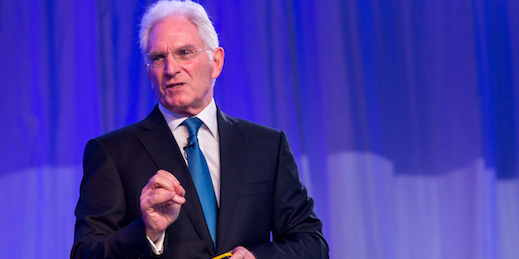Dr. Nasser Saidi was interviewed by Arab News on the state of the Lebanese economy: he provided his views on addressing the debt burden as well as financial support for the country. He states that a rescue package is needed ‘to restore confidence’ and kick-start major banking reforms.
The article, titled “Former Lebanon economy chief in plea for $25bn bailout plan“, was published in Arab News on 5th Feb 2020 and is posted below.
Former Lebanon economy chief in plea for $25bn bailout plan
A former Lebanese economy and trade minister has called for a second Paris summit to bail out the debt-ridden nation with financial support of up to $25 billion.
Nasser Saidi, who is also a former deputy governor of Lebanon’s central bank, told Arab News that restructuring of the country’s banking system is needed urgently and that “depositors should not have to pay for banks’ mismanagement.”
Financial support of between $20 billion and $25 billion is needed “to restore confidence,” he said.
The former minister’s comments come almost two years after a Paris conference rallied international support for an $11 billion investment program in Lebanon. More than 50 countries, including Saudi Arabia, the US and Russia, took part in the summit alongside the World Bank, the IMF and major finance institutions.
Saidi told Arab News: “We need to address Lebanon’s debt burden as part of a comprehensive macro-economic fiscal, financial, banking and currency reform program. The debt problem cannot be viewed in isolation.”
The country’s sovereign debt is now running at $90 billion, or 160 percent of gross domestic product (GDP), he said. The cost of servicing the debt is around $10 billion, which is 22 percent of GDP and more than 65 percent of government revenue — “a debt burden that is totally unsustainable.”
Lebanon’s central bank also owes $120 billion to the country’s banks that it is unable to repay. “So when we talk about the problem, it means addressing the sovereign debt problem and the central bank debt problem,” Saidi said.
He said the $11 billion in infrastructure spending promised at the 2018 Paris meeting “is no longer relevant because Lebanon’s financial circumstances have changed radically.”
“Lebanon is in a recession that will become a depression, meaning that GDP might decline by 8 to 10 percent this year,” the former minister warned. “An economic stabilization fund of around $20 to $25 billion is required for balance of payments problems, dealing with liquidity at the banks and, at the same time, it would need to be accompanied by a restructuring of the banking system.
Saidi urged major shareholders to help Lebanon’s struggling banks recapitalize with cash injections drawn from past profits.
“Recently Bank Audi sold its subsidiary in Egypt. Other banks should sell their subsidiaries outside and bring their money home. They may have other investments they can liquidate, such as real estate, in order to increase capital.”
The former minister claimed that “with the $25 billion Lebanon requires, confidence will be restored, and you can start attracting capital back into the country.”
Commenting on recent government reforms in the energy sector, including electricity, Saidi said: “It is totally unrealistic; power plants can be built in six months. We need to stop corruption and waste. GE, Siemens and the Chinese can build plants in six months. The fuel bought now is priced above international prices, so the government should approach Gulf countries and ask them to supply us with fuel at international prices or even lower, in line with what they did for Egypt in the past.
“That would reduce our fuel and electricity bill by $3 billion. This package needs to be completed with a social safety net since, according to World Bank figures, one-third of the Lebanese population is living below the poverty line,” he said.






